Key Takeaways Compensation for motorcycle accidents is primarily influenced by fault determination, injury severity, and limits on available sources of recovery. Economic damages encompass medical expenses and lost wages while non-economic damages include pain, suffering, and emotional distress. Legal representation is crucial for navigating claims, negotiating settlements, and ensuring fair compensation in motorcycle accident cases. […]
Key Takeaways Motorcycle crash lawsuits require proving negligence and establishing liability to secure compensation for medical expenses, lost wages, and related costs. The severity of injuries and liability determination significantly influence the amount of settlement in motorcycle accident cases, highlighting the importance of gathering evidence and legal representation. The legal process of filing a motorcycle […]
Key Takeaways Motorcycle accident cases hinge on proving negligence, with key evidence including accident documentation and witness statements. Victims can claim both economic damages (e.g., medical expenses) and non-economic damages (e.g., pain and suffering) post-accident. Legal representation is critical for navigating insurance negotiations and filing lawsuits, ensuring adequate compensation and protection of rights. The Basics […]
Key Takeaways Key factors leading to motorcycle crashes include visibility issues, driver negligence, and speeding, emphasizing the need for awareness and adherence to traffic laws. Adverse weather conditions, such as rain and fog, significantly elevate risks for motorcycle riders, necessitating cautious riding and speed adjustments. Rider behavior, including risk-taking and impaired riding, plays a crucial […]
Key Takeaways Pain and suffering damages in motorcycle accidents encompass both physical and emotional distress, significantly impacting settlement amounts. Calculating these damages often utilizes the multiplier and per diem methods, each suited to different scenarios depending on injury severity and recovery. An experienced attorney, like Wyly & Cook, is crucial in overcoming challenges in securing […]
Key Takeaways Understanding common reasons for denied hail damage claims, including insufficient evidence and policy exclusions, is crucial for strengthening future claims. Engaging a roofing contractor and documenting all damage comprehensively can significantly enhance the chances of a successful appeal after a claim denial. Regularly reviewing your insurance policy and maintaining your roof can help […]
Key Takeaways Property insurance claims can be rejected due to insufficient coverage, policy exclusions, fraudulent claims, untimely reporting, and lack of documentation. Homeowners should understand their policies, including exclusions and limitations, to avoid claim denials arising from pre-existing damage or uninsured perils. Regular maintenance, timely reporting, and accurate documentation are essential for successfully navigating the […]
Key Takeaways Insufficient coverage is a leading reason for fire claim denials; regular policy reviews are crucial to ensure adequate limits. Cooperating with investigations and maintaining fire safety measures can help prevent claims from being denied due to arson suspicion or negligence. Accurate documentation and timely claim submission are essential for avoiding denials; homeowners should […]
Key Takeaways Hiring a hurricane claims attorney helps navigate complex insurance claims, ensuring fair compensation after hurricane damage. Homeowners need to understand the differences between wind and flood damage coverage, as standard policies often exclude flood-related losses. Proper documentation and prompt action are critical for successful hurricane insurance claims, including keeping records of damages and […]
Key Takeaways An underpaid claim occurs when the insurance reimbursement is less than the billed amount, often due to insurers employing tactics to minimize payouts. Common reasons for underpaid claims include the application of unreasonable depreciation, billing errors, and ambiguities in insurance policies that insurers exploit. To address underpaid claims, policyholders should review their insurance […]

